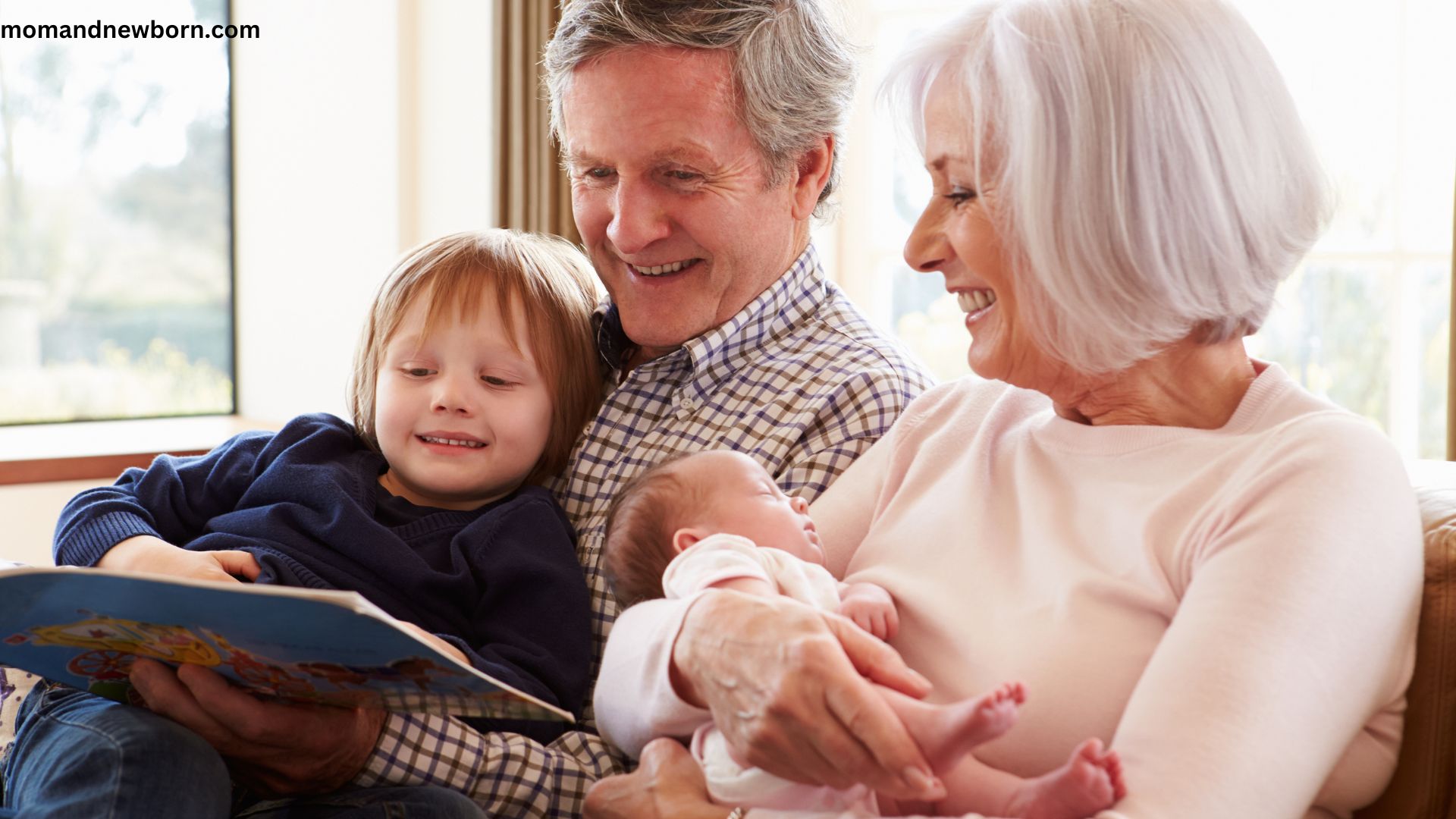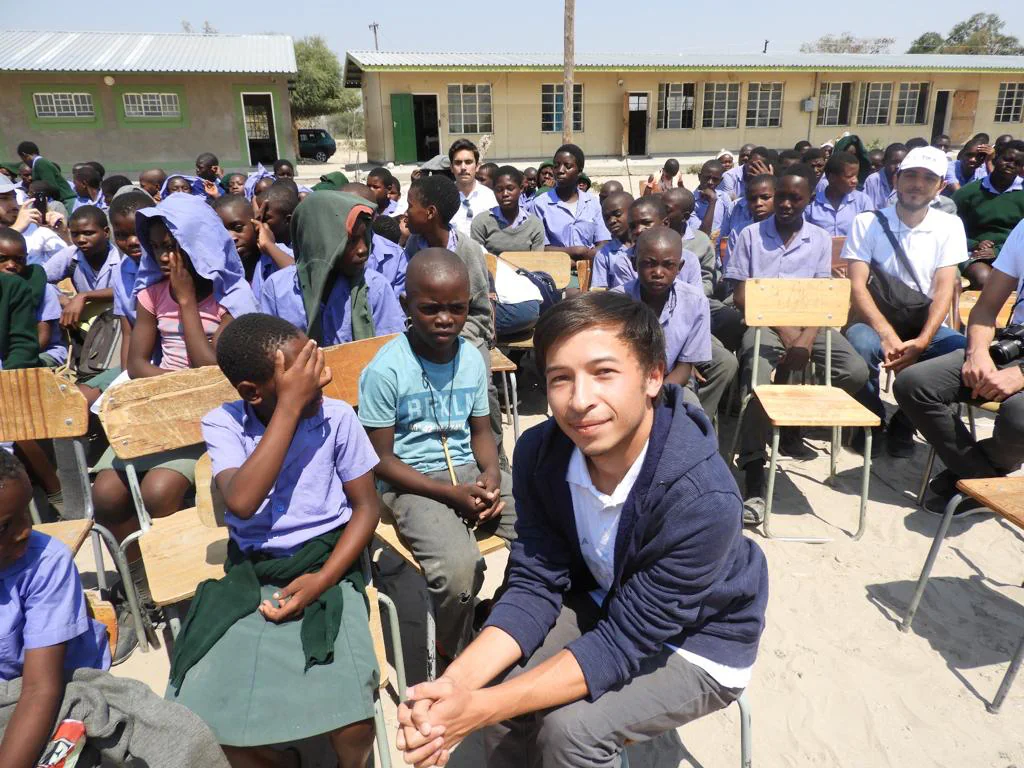Building Bonds: How Grandparents Strengthen Family Ties with a Newborn
Grandparents can play a significant role in a newborn’s life, providing love, support, and guidance to both parents and the baby. From sharing wisdom and experience to helping, grandparents can positively impact a child’s growth and development.
But how do grandparents fit into the dynamic of a new family? What are some of the ways they can help, and what are the challenges they may face?
In this article, we’ll explore grandparents’ important role in a newborn’s life and share some tips on strengthening the bond between grandparents, parents, and the newest addition to the family.
Do babies need grandparents?
While babies don’t necessarily need grandparents to survive, having grandparents can provide many benefits. Grandparents can offer love, support, and guidance and play a crucial role in a child’s development. Studies have shown that grandparents can positively influence a child’s cognitive, emotional, and social development.
Additionally, grandparents can provide a sense of family history and tradition and offer a different perspective on life that can be valuable for a child’s growth and learning. In short, while babies may not necessarily need grandparents to thrive, having them can enrich their experiences and contribute to their overall well-being.
How important are grandparents in a child’s life?
Grandparents play a significant role in a child’s life and can positively impact their physical, emotional, and social well-being. Research has shown that children with close relationships with their grandparents have a better sense of security and higher self-esteem and are less likely to experience behavioral problems.
Grandparents can offer a different perspective on life and provide children with wisdom and guidance from their years of experience. They can be a source of unconditional love and emotional support, essential during difficult times or major life transitions.
In addition to providing emotional support, grandparents can contribute to a child’s cognitive development. They can share their knowledge and expertise, introduce new ideas and concepts, and provide opportunities for the child to learn new skills.
Overall, grandparents can be a valuable and enriching part of a child’s life, providing them with a sense of continuity and connection to their family history. (1)
How can grandma help with a newborn?
Grandmas can be an invaluable resource for new parents. They bring years of experience and can offer advice, support, and love during the newborn stage. Here are some ways that grandmas can help with a newborn:
- Help with household chores: Grandmas can help with cooking, cleaning, and laundry, which can take some of the pressure off new parents.
- Provide emotional support: Grandmas can provide a listening ear, a shoulder to cry on, and words of encouragement during the ups and downs of parenting.
- Babysitting: If the parents need a break, grandma can babysit for a few hours or overnight.
- Help with breastfeeding: If the new mom is struggling with breastfeeding, grandma can offer guidance and support.
- Share their wisdom: Grandmas can offer advice based on their own experiences, which can be especially helpful for new parents navigating uncharted waters.
- Be a companion: Grandmas can be a wonderful companions for both the baby and the new mom, providing a source of love, comfort, and security.
- Pass down traditions: Grandmas can share their traditions and values with the new generation, creating a sense of connection and continuity in the family.
Do babies get genes from grandparents?
Each person has 23 pairs of chromosomes, with one set inherited from each parent. Those chromosomes are made up of DNA, passed down from generation to generation.
Therefore, a baby gets 50% of their genes from each parent, who, in turn, get 50% from their parents (the baby’s grandparents).
The specific combination of genes inherited from grandparents can play a role in a baby’s physical appearance, health, and even personality traits.
At what age do babies recognize grandparents?
Babies can start to recognize their grandparents from a very young age, as early as a few months old. However, the extent of their recognition will depend on the amount of time they spend with their grandparents and how often they see them.
By the time a baby reaches six months old, they may be able to recognize familiar faces, including their grandparents, and may show signs of excitement when they see them.
Babies will become more comfortable with their grandparents and form stronger bonds with them as they grow and develop.
When can you leave the baby with grandma?
The decision of when to leave a baby with a grandparent largely depends on individual circumstances and the parent’s comfort level. However, most pediatricians recommend waiting until the baby is at least six weeks old and has established a feeding and sleeping routine. It is also important to ensure that the grandparent is capable and willing to care for the baby and that the home is safe and child-friendly.
How do you set boundaries with grandparents and new babies?
Setting boundaries with grandparents can ensure a healthy relationship between the grandparents and the new baby. Some tips for setting boundaries:
- Communicate clearly: It is important to communicate your expectations with the grandparents and ensure they understand what is and isn’t acceptable. Be respectful but firm in your communication.
- Discuss child-rearing practices: If you have specific ideas about how you want your child to be raised, discussing those with the grandparents is important. This includes things like discipline, feeding, and sleep habits.
- Set limits on visitation: While it’s important for the baby to spend time with their grandparents, it’s also important to set limits on how often they can visit. You should ensure the visits don’t interfere with your baby’s routine or schedule.
- Respect their opinions: While you may have different ideas about how to raise your child, it’s important to respect the opinions and ideas of the grandparents. You don’t have to agree with everything they say, but you should listen to their ideas and consider them.
- Be consistent: Once you’ve set your boundaries, it’s important to be consistent and follow through with them. This will help establish clear expectations and ensure everyone knows what is expected of them.
You may also be interested:
- Effective Childcare Tips For Working Parents: Balance Work And Family Life
- Egg-Citing Easter Basket Ideas For 2-Year-Olds
Frequently Asked Questions
How soon after birth should grandparents visit?
The timing of when grandparents should visit after the birth of a baby can vary based on individual preferences and circumstances. Some new parents may want time to bond with their baby and adjust to the new changes, while others may welcome the support and help from family members as early as possible.
Do babies get attached to grandparents?
Yes, babies can develop strong bonds with their grandparents, as they can provide a nurturing and supportive environment. Grandparents can often offer a different perspective and play a unique role in a child’s life.
Why is my baby scared of grandma?
There could be some reasons why a baby may be scared of their grandmother. Sometimes babies can be sensitive to unfamiliar faces and environments, and it may take some time for them to adjust. Additionally, if the grandmother has a loud or overwhelming presence, it could make the baby uncomfortable or scared.
Why does my baby cry when grandma holds her?
Babies may cry when being held by their grandmothers for various reasons. It could be due to being overstimulated, hungry, or tired. Additionally, some babies may prefer being held by their parents and may take some time to warm up to other people.










2 Comments